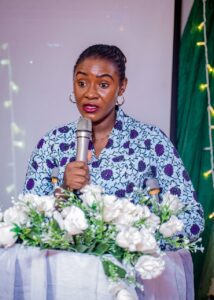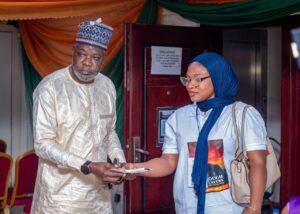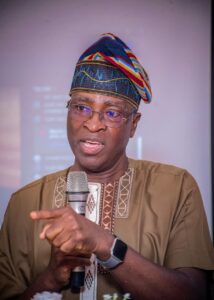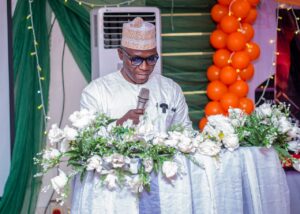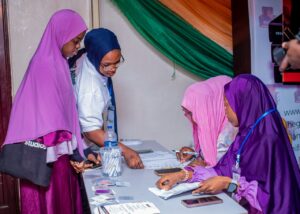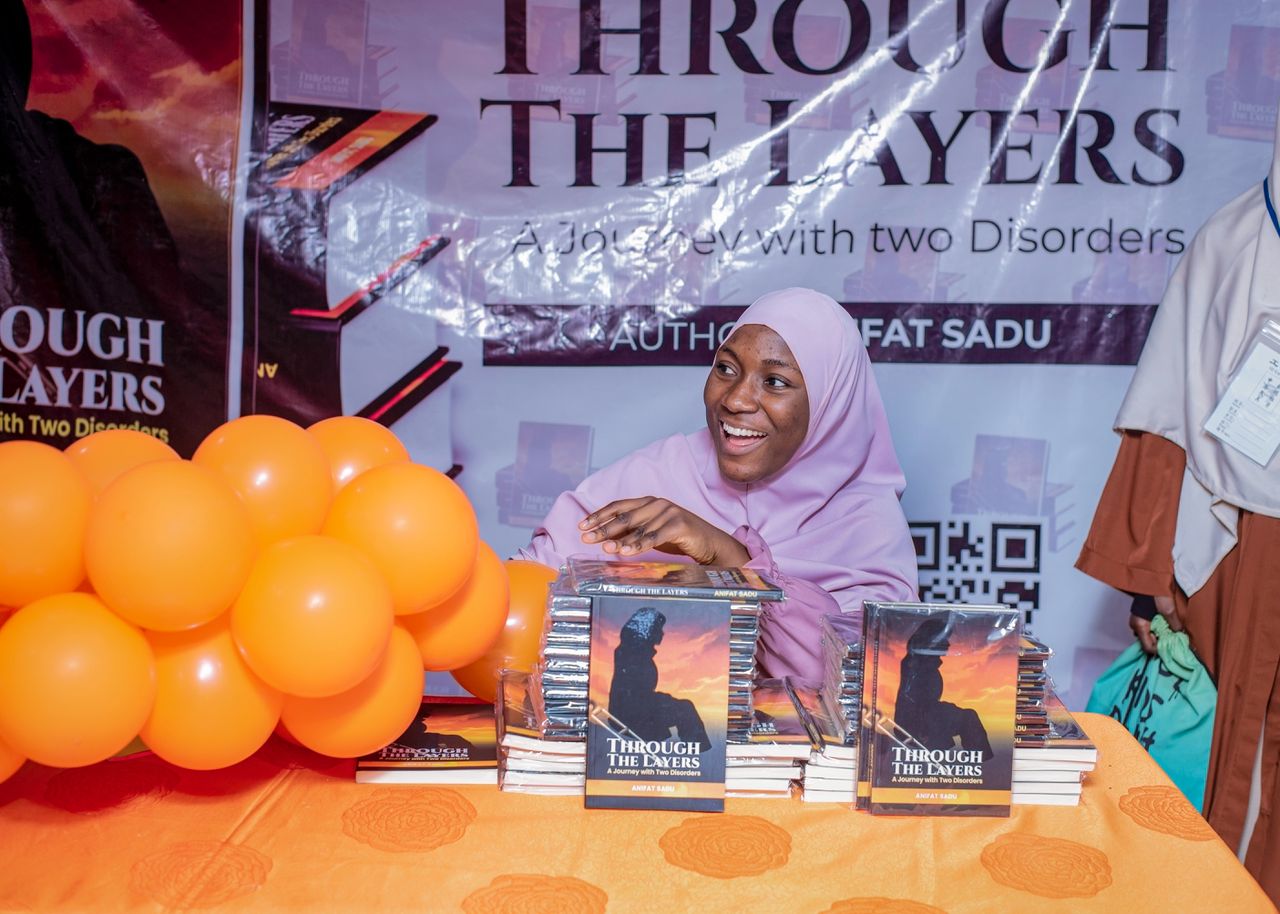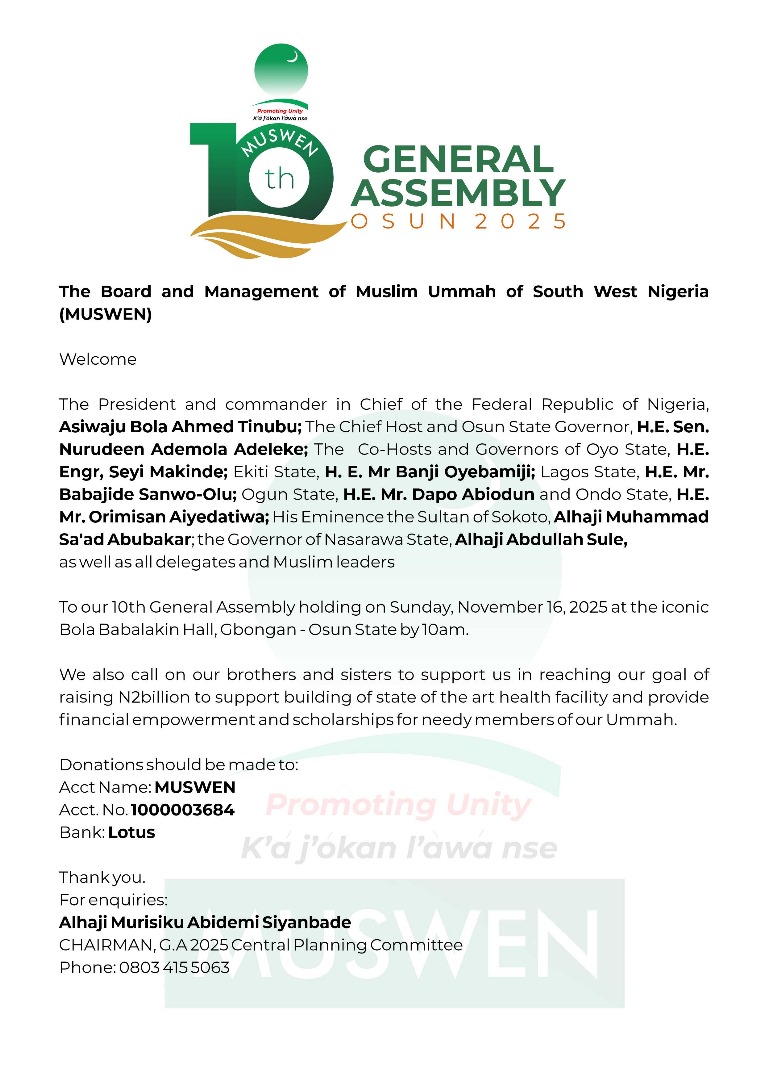* 23-year-old Muslimah turning challenges into advocacy for youth inclusion
Ms. Anifat Sadu, a 23-year-old international speaker with both Cerebral Palsy and Obsessive-Compulsive Disorder (OCD), has launched a powerful new book aimed at raising awareness on the lived experiences of people with disabilities and the importance of mental health.
Titled “Through The Layers: A Journey with Two Disorders”, the 203-page book was unveiled on Saturday at LCCI, Ikeja, Lagos, in an emotional event attended by family, friends, government officials, and members of the cerebral palsy community.
The book was described as a tale of courage, healing, and victory, which captures the young Muslimah’s personal battles and triumphs, with a message of hope for others navigating life with visible or invisible challenges.
Despite receiving injection that infected her with cerebral palsy at age 3, the Bowen University Microbiology graduate has transformed her personal struggles into purpose, using her story to inspire and advocate for inclusion, support, and mental wellness, particularly among youth.
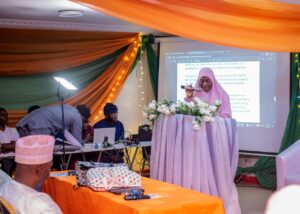
According to her, “It started with an injection. They didn’t know it was cerebral palsy, they were treating symptoms all the while until I researched my symptoms during my teenage years and realised that it was cerebral palsy. I reached out to two of my past physiotherapists who also said it’s cerebral palsy.”
Muslim News’ findings revealed that while cerebral palsy has no known cure, it can be managed with proper care, support, and determination.
Speaking at the event, Ms. Sadu said, “When some people see me, they won’t believe I have a disability because it’s not so obvious. But I, my parents, my physiotherapist, and some of my teachers know what we have gone through.
“Cerebral palsy doesn’t have any cure, but it can be improved and I am a living testimony,” she said.
Reflecting on her childhood, the young Muslimah recalled the confusion and isolation she experienced. “As a child, I didn’t understand why I had to be taken to the sick bay whenever my muscles acted up. I always wanted to sit in class with my peers. I always felt confused and lonely.”
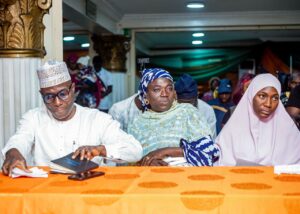
Ms Sadu recounted hurtful experiences and damaging comments made by school staff, who attributed her condition to superstitious beliefs.
“I heard staff in school saying things like maybe my mother had done rituals and I heard all sorts of things. In that situation, if you’re not strong enough, you may commit suicide. School always felt like a room meant for everyone except me,” she said.
Despite attending an inclusive school, she said support was limited and she rarely met anyone who looked like her or understood her struggles. “I struggled to write and would ask for support. When I asked for a laptop, they would say it was not available, so I had to learn how to adapt to the system,” she said.
Her story is a sobering reminder of the urgent need for inclusive policies, accessible learning tools, and compassionate environments for children with disabilities across Nigeria.
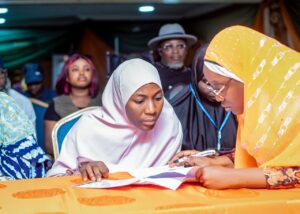
Ms. Sadu’s testimony is a call to action for educational institutions and society at large to do better in embracing inclusivity and supporting all learners, regardless of ability.
The Ilorin, Kwara state born author reflected on her lowest moments, particularly in her third year at the Bowen University. According to her, “When I was in 300 level, I began to have scary symptoms — not physical ones, but mental. I kept having intrusive thoughts. At times, I would wake up in the middle of the night soaked in sweat and shivering. For a while, I forgot why I was in school.”
Concerned about her deteriorating mental state, she sought professional help from a psychiatrist hospital and was eventually diagnosed with Obsessive Compulsive Disorder (OCD). “Dr. Badru Wasiu explained it to me as a condition where intrusive thoughts tell you to do things you know you shouldn’t. It’s scary and causes anxiety,” she recounted.
Despite these challenges, Ms. Sadu continues to push boundaries, describing cerebral palsy not as a limitation but a part of her journey.
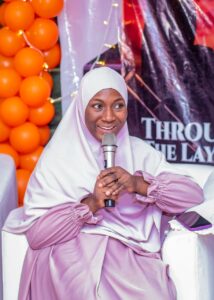
After completing her National Youth Service at Ogudu Local Government in Lagos, she pursued and obtained a Postgraduate Diploma in Psychology from the University of Lagos.
Speaking of the inspiration behind the book, she described it as more than just a memoir. “This isn’t my first book, but I’ll call it my official one. It’s not just about me. It’s about everyone facing mental health battles. I want this book to feel like a companion to them.”
She expressed heartfelt appreciation to her family, panellists, classmates from UNILAG’s postgraduate programme, and everyone who supported the event, noting that their encouragement made the journey worthwhile.
Ms Sadu’s story serves as a powerful reminder of the intersection between physical disability and mental health — and the courage it takes to confront both with grace and strength.
Therapists and parents share insights on disability, mental health at panel discussion
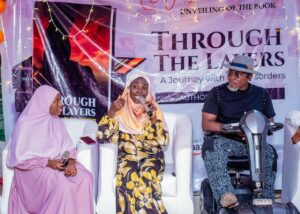
Therapists and parents, who honoured Ms Sadu at the book unveiling, opened up about the challenges faced by individuals with disabilities and the importance of compassionate care and acceptance.
A therapist, Ayooluwa Oni, noted that “doctors and therapists are humans, too,” but expressed concern that some doctors deliver diagnoses in ways that make patients “think worse about the situation and think of just dying immediately.”
Oni urged parents never to look down on their children. “Every child is good at something. Never look down on them. The way you present your child is the way other people will accept your child,” he said.
Another therapist, Mrs. Nafisat Ogunbonna stressed the urgent need to normalize seeking help for mental health challenges. She said, “We need to normalize seeking help. If you don’t seek help, it will continue like that. When you realize you’re beginning to have negative thoughts, talk to a therapist.
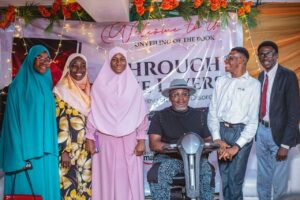
“Faith leaders and the community need to talk about mental health and support people. Without mental health, there is no health,” she noted.
In a heartfelt testimony, Ms Olaitan Islamiyyah Akinsola spoke about her daughter living with cerebral palsy. She said, “My daughter has cerebral palsy, and the family does not want to accept it, but my husband accepted my daughter’s condition and always took pride in taking her out.
“She (my daughter) takes pride in presenting herself and does not allow anyone to bully her because of her condition,” she said, stressing that, “It is what you accept as parents that people will dish out to you.”
The panel highlighted the critical role of acceptance, support, and open conversations in improving the lives of people living with disabilities and mental health challenges.
Book Summary
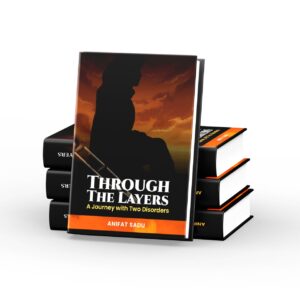
Anifat Sadu’s book tells the inspiring true story of her journey growing up in Nigeria with Cerebral Palsy and Obsessive-Compulsive Disorder (OCD) after a life-changing injection at age three. Through pain, faith, and resilience, she shares her struggles and triumphs, offering hope and insight into living with disability and mental health challenges.
To purchase the book, visit www.anifatsadu.ng or contact: Anifat Sadu (Lagos): +234 906 347 5390; Basirah (Abuja): +234 704 813 8673 and Ilorin, Kwara: +234 904 620 4485.
